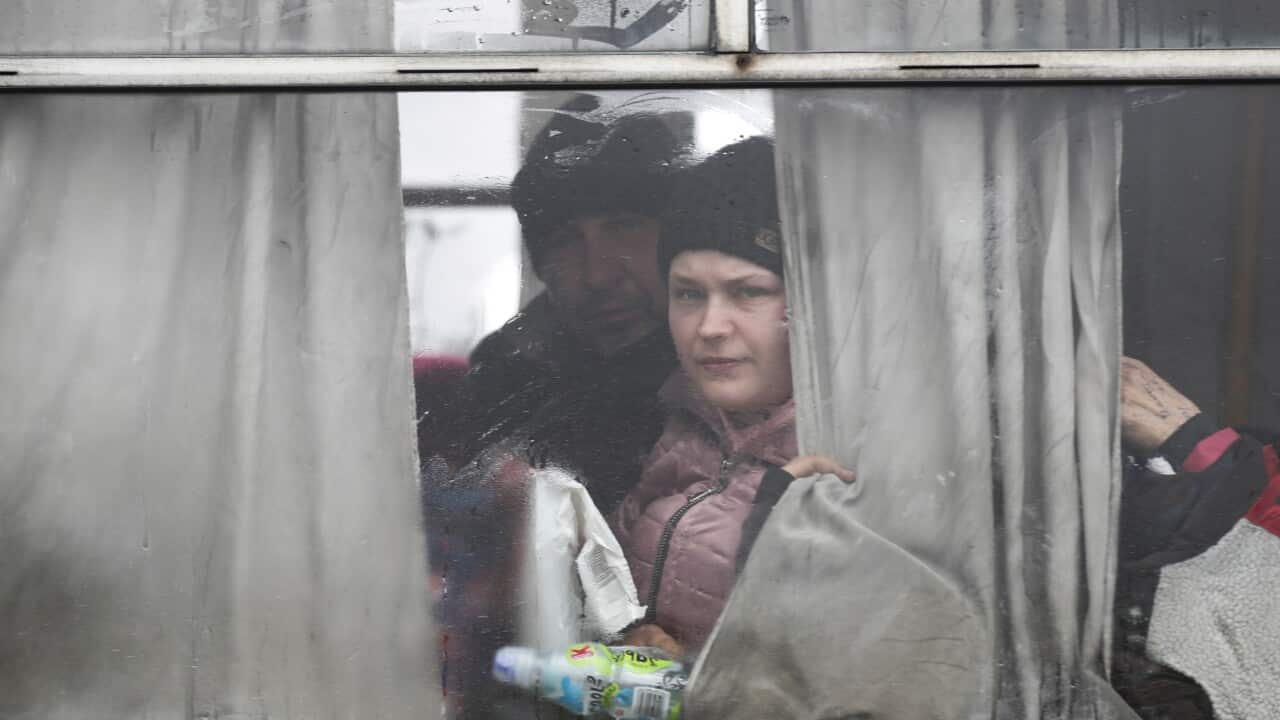Ukrainians fleeing the Russian invasion and who arrived in Spain face a new battle: accessing basic resources, finding work and housing.
Natalia Bochan, a Ukrainian woman who arrived in Madrid years ago and co-founded Volunteers for Ukraine, told SBS Spanish that even the luckiest ones, those who find a job, still do not earn enough to support themselves.
“Of those who do manage to find work, it is usually very low paid and insecure and not enough to cover rental expenses,” Ms Bochan says.

According to data from the Spanish Ministry of Inclusion, Social Security and Migration, there are currently about 130,000 displaced Ukrainians in Spain to whom the government provides temporary residence permits and financial aid that includes support for renting housing.
In addition, the government announced in July a new package of 400 euros for vulnerable Ukrainian families who cannot access other support networks.
“These grants do not provide guarantees to property owners, who, upon hearing that the tenants are Ukrainians, do not want to accept them,” Ms Bochan explains.
This rejection is pushing many Ukrainians to return to their war-torn country, even though attacks continue, she says.
This is the case of Svitlana Kornienko, an English-Spanish translator and interpreter.
She fled Kyiv on February 24 with her 16-year-old son and 13-year-old daughter. She left her 22-year-old eldest son and her husband behind, as they were enlisted to fight in the army against the Russians.
Ms Kornienko and her children left by bus to Warsaw, where they stayed at a friend's house for a few days before continuing on to Madrid, where they stayed at another friend's house for two-and-a-half-months.
Despite the fact that the family had money to rent a house, Ms Kornienko says they were repeatedly rejected by potential landlords.
“Of course, I understand Spaniards who don't want to let Ukrainians in because they don't know if they're going to [be able to] pay or not. It's a big problem,” Ms Kornienko concedes.
For her, going to live in a centre for displaced Ukrainians was not an option.
“People tell me that the food is very bad, the conditions are very bad, with five people living in one room, it's impossible,” she says.
After living nearly three months in Spain, Ms Kornienko says she decided to return to Kyiv with her two children.
“The decision to return was very easy,” she explains. “It wasn't hard because [I was returning to my] homeland, to my land. Everything that is happening in Ukraine is my life.”
She and her family spent Ukraine's Independence Day, August 23, in a bomb shelter hiding from a Russian aerial attack.
I have understood one thing: we have to fight for our land and defend it even if it costs us our lives.
"If we die, other Ukrainians will remain, and they will rebuild our homeland. We don't want to disappear. At the moment I'm not afraid of anything," Ms Kornienko staunchly says.

When asked if she fears for the life of her 22-year-old son fighting on the front line, Ms Kornienko says she is sure her country's troops would eventually emerge as victorious.
“I'm sure we'll win,” she says. “I don't want to think negatively and say that I'm afraid that I'll die".
My son is not going to die, I'm sure he will win. We need to support our soldiers.
For the time being, Ms Kornienko says she helps her son from Kyiv by sending him food and washing his clothes once a week.
“I am living in the present, thinking about what I have to do today. Tomorrow, happens then, and I will act accordingly,” she says.

Meanwhile, Ukrainian refugee, Anastasia Vovk, is experiencing the reality of remaining in Spain.
Aged 26 and a recent obstetrics and gynaecology graduate, she left Kyiv on March 9 on one of the evacuation trains organised by the government. She is optimistic that Spain will eventually validate her medical degree.
In the meantime, she is working in a restaurant and, through a network of acquaintances, has been able to find accommodation.
“I was lucky enough to meet a girl at the volunteer centre who put me in touch with a friend who rents me a room,” she says.
Ms Vovk left her family in Kiev and, despite her enthusiasm to settle in Spain, she says she looks to the future with uncertainty.
“My goal to validate my degree and earn money to help my family," she explains.
"If I go back to Ukraine, I don't know what's going to await me. I want to see my family again, but now the economic situation in Ukraine is very serious."

Ms Bochan says she believes the war will drag on, so she plans to continue helping her fellow citizens by volunteering through the association.
“I would like to ask that they continue to help. I know it is very difficult, to see that the resources are running out, that the people who once wanted to help are running out of steam," she says.






